Matt Whitman, Podcaster, YouTuber & Outdoorsmen Joins The Herd Has Spoken Podcast
Matt Whitman -- Podcaster, YouTuber, Outdoorsmen, & Deep Thinker
Matt Whitman joins The Herd Has Spoken to chat with Brad about adding value, our connection to the outdoors, and the historical significance of the events that are happening today. Matt and Brad dig deep into why now humans are deciding to leave the largest institutions of the decades, including corporations, churches and marriage. Matt is someone who is energized by humor and people, he also released over 1000 pieces of content online through The Ten Minute Bible Hour on YouTube, and The Ten Minute Bible Hour and No Dumb Questions podcasts.
Apple Podcasts | Anchor.fm | Breaker | Google Podcasts | Spotify | YouTube
Enjoy the conversation between Matt and Brad
Brad
Matt, so you're someone who's self proclaimed to really be into rock music and really be into humor. And, and while I've never seen it work very well, asking someone to tell a joke or provide humor on the spot. I have seen it work pretty well in terms of understanding one's preference for rock and roll music. So with that, I would love to start with your four top rock'n'roll bands of all time.
Matt
Okay, Tom Petty and the Heartbreakers, Muse, The Foo Fighters.
Like I'm working through three different options, and I'm going with Boston. Those would be the four that are pretty much automatically awesome to me. You?
Brad
Well, there's so many ways you can answer this. So I think you answered it from the perspective of your four favorite bands.
Matt
Oh, no, those are the four greatest in the history of ever, because what is the greatest in the history of ever happens to exactly correspond with my own preferences? Because I'm an objectivist?
Brad
Absolutely, absolutely.
Matt
So I guess that means the Chicago Cubs are also the best baseball team of all time for me, because that's just my favorite team. So they have to be the best right? I can't even play this game because I root for the Rockies and they're literally the worst franchise in all of professional sports, including the Serbian Adriatic Basketball League. The Colorado Rockies are where the term dumpster fire originated. We just traded the best third baseman in the history of the sport to the Cardinals for nothing. Plus, we give you $50 million because I don't know why. So yeah, I'm gonna go with your assessment of the Cubs because I have my own position is indefensible.
Brad
I love it. I love it. Well, hey, if you want to talk dumpster fires, I am in Detroit we have the lions I I'd have a hard time feeling like that could be trumped by the Rockies but we can we can agree to disagree on that one. If you if you want to go to go to task rock.
Matt
I'll tip the cat to the cubs. I'm fine with that. The Lions that is tough, man. I think they only actually went own 16 once, but it feels like they've gone Oh and 16 every year since 1995.
Brad
I would agree with that. They've gone Oh and 16 every single year. So I in terms of the top four rock bands of all time for me. For me. I would probably say you two oh GNR the doors and the Beatles wow you too.
Matt
Now I'm feeling conflicted about my list. Thanks a lot. I have great respect for the other three they just I just I don't know. I don't resonate quite as much do you like Muse? Do you appreciate Muse?
Brad
I am probably the worst person to have this conversation with. I'm like the Detroit Lions. disappointing because you started it? I did. I did because you know a lot about it. So that's why that's why we do this thing that you know a lot about stuff so I asked you about it so I can get I can get smarter. So what you sell us to sell us on us what makes us a top rock'n'roll band.
Matt
Yeah, I feel like I can't have news and Queen, both in my top four. Because I feel like Muse is the heir apparent to Queen. It just so happens that the era in which Muse is making music and the subject matter about which they perform lines up with my interests a little bit more than Queen does I love queen. Muse is like what rock used to be when rock was pissed off at planet Earth. And rock looked at the military industrial complex and consumerism and greed and all of the things that rock used to just rail against it used to rage against the machine. Now all rock does is prop up the machine. It lectures people on morality and how you should behave in what you should think it's all tisk tisk it's not brave. It doesn't take any chances. It doesn't. It imagines the rock does now that it's like cutting edge and really it's we're going to offend some people. No you're not. You're going to offend the Sunday school superintendent who retired from that post because of old age 25 years ago, and still can maybe barely hear your rock music but couldn't possibly discern the lyrics. They are yelling at a crowd that no longer exists while still patting themselves on the back for raging against the machine. Whereas Muse has the courage to actually Rage Against the Machine. I don't probably agree with all their politics. I don't care. I don't need that from a rock band. I just love the fact that they're playing A fight, that they're pushing back on all the safe opinions and safe things to do and not even in a left, right, nonsense spectrum kind of way, just in general, they're like the bull in the china shop music wise, but they do it artfully and well, whereas a lot of the bands that did the bull in the china shop thing in the past, really were just there to be a bull in the china shop. And that's it. It doesn't matter if they're any good. I mean, it's some of the roots of punk which I love, which is musically a mess, whereas Muse Whoo, they performed on stage with you, too. There's a couple of beautiful YouTube videos of them performing to a massive stadium full of people with the edge or I think the piano and listening to Matt Bellamy of Muse sing stuff from the Joshua Tree with the edge. Playing lead guitar rhythm guitar in the background is. I mean, it's just magnificent. News muses last album, is an 80s synth wave concept album, that tells the story beginning to end, all the videos tell a story. And the videos are like an homage to Ghostbusters, and Gremlins and all of this stuff. But the whole theme throughout is the idea of a thought contagion, that the internet and social media has created this new neural pathway, this new possibility for communicable minded disease to spread among people. Now, it never specifically names what the disease is, they're not picking on that crowd or that crowd. They're just saying this thing that we're all drinking deeply of, yeah, there might be some black mirror downside to this as well. And they do it all by throwing back thematically, visually and musically to an age before all of that was put together, almost arguing like this was the technological sweetspot that enabled us to swap ideas but not infect each other, with whatever they would define as a mind virus. So Muse is musically fantastic. It is brave, it's always saying something, it's all they're always moving musically to something different. They take chances, they don't mind alienating their fans by trying to evolve and be creative. And that, my friend, is my muse sales pitch. Thank you.
Brad
I think it's tough to argue with that, Matt. I mean, that's pretty well done. I think there's some themes here, between you and Muse that want to pick into a little bit. So they're all right. So you mentioned the whole idea on pushing back on safe opinions being being courageous, and and taking chances. Yeah, and so you're someone who's done a lot of different things and continues to do a lot of different things. And I want to put you on the spot again, and ask you, do you most identify as a YouTuber, a podcaster, or a mountain man?
Matt
I've been thinking about that a lot lately, because you put 1000 pieces of content on the internet. And that's about where I'm at right now. I mean, it's hard to keep track, but I can ballpark it. I'm right around 1000 things that I've recorded published on my own platforms are betting guests like this and had published on somebody else's platform. That's a lot of making stuff. And trying to make sure you provide value to whoever would take the time to listen to that every single time. It's a lot about thinking about what other people need, and where the conversation is at any given moment. I think over time, that can get a little bit disorienting on the identity front. And so I think I want to say mountain man, just because there's at least some continuity there. YouTube is cool. I like doing it. It's, it's ridiculous to think that I can just walk in the other room, turn on this little camera I bought and turn on my little light setup, work on a project and there's a captive audience. Like I can put together a 70 minute video on medieval myths and rumors about the fate of punches Pilate after the Bible. And people show up and they want to watch that. Are you kidding me? The beautiful, cool thing that the YouTube affords us the ability to get into all of this really fascinating niche stuff. But of course, you couldn't throw on TV. Not enough people care about that, but still a lot of people care. So that's a neat thing. And I like that about YouTube, but at the same time. It's an algorithm that's a software platform, it's social media. I don't want to be defined by that. It's so transient and so temporary youtuber means something different. It now than it did five years ago than it did 10 years ago than it will in 10 years. So no, I don't think I want to find identity in that. In fact, I find myself less and less often answering the question as I meet someone. So what do you do for a living, I just don't really bring up the YouTube thing very much anymore. And it's not because I'm trying to impress them. I think that's for me, that's for me is I try to think about who am I if I'm not chasing the algorithm, and not chase and trying to connect with where people's brains are at. And the thing that I do, that does not require any electronics I spin is fly fishing, I spend most of my time without stuff on every now and then you'll listen to an audio book or whatever. But for the most part, that and family are the two things that I like to do that are completely electronically unmediated. I'm going to go and drink as deeply as I can have this perfect mountain scene, I'm not going to stand on the shore and look at fish, I'm going to go into the water. I like to wade without waders, I want to feel the water on my legs, I don't care if it's cold, and that cold starts to creep up as it goes along. I want to fish upstream, I want to find pockets of trout. And then I want to introduce myself to those trout. I want to feel the physical connection with a wild animal. I want to look at it, I want to nurture it, I want to appreciate its beauty. And I want to gently drop it right back into the water in a gesture of trust. Not that I would criticize anybody who likes to eat the fish they catch, but I don't. I just want to drink deeply of the beauty of this environment I've been blessed with. And I want to think about non electronic things. I want to think about virtue and morality and ideas and beauty and love and the things that were here long before the internet and will be here long after the internet. And so if those are the three options, you're given me, I love podcasting. I still enjoy YouTube. But the mountains are metaphor for me for something much more transcendent and meaningful, spiritual God, family eternal things kind of territory. Was that the question you were asking? I just butchered that. What am I talking about right now?
Brad
I love it. I love it. So when you're starting to think about your appreciation of fly fishing, yeah, and the outdoors. What does that say about who you are? I mean, you touched upon this a little bit. But I know that's core to who Matt Whitman is being able to have that connection to the outdoors. And you touched upon it a little bit, but, but I'd love to understand that just a little bit of a deeper level. What does your love of fly fishing and the outdoors say about who you are?
Matt
Well, here's one thing. I'm not even that good at it. You know, I can catch a lot of fish on days when anybody could catch a lot of fish.
Brad
And long as you've got a net.
Matt
Yeah, that's a great trick right there. I mean, you know, my techniques, not bad networks out but a great fly fisherman is gonna get fish, pretty much any day they can crack the code. It's not like fishing with a spinning reel where you provoke a bass long enough, it's there, it's gonna hit that thing. trout or site fishers are very different animal they hunt differently. It's fly rod is just a completely different exercise. And I like that I lose at it a lot. The losing is really important. I'm, I don't like losing. And I kind of hate it. I'm a good loser. I think with some exceptions, I handle losing really well. But I want to be a great loser. And fish defeat me all the time. I'm still on your question, but one example of getting defeated by the fish. I was fishing the Snake River, I guess buffalo fork at the Clark Fork. I was fishing the Clark Fork in Idaho a couple summers ago. And it's wide man. It's like a football field wide where I'm fishing but you can wait the whole thing and just picture perfect beauty next to the Grand Tetons. I mean, that's what it is. Do whatever is beautiful in your brain and flawless in terms of nature. It was that crystal clear water, fat brook trout. You normally bird chatter a little bit and this is a place with monsters. Man I worked that whole thing up down. I got my rod that I saved up money for. Yes, it's not like what some people say but I paid like three 400 bucks for that. That's that's good money for me. I tried so hard I had on my little outfit and the whole bit and I'm sneaking and creeping and getting down into the water and doing the equivalent of fly fishing army crawling to trick these fish. I could see them. I could see what they were eating. I was giving them what they were eating and I just couldn't do it. hours go by. Finally I'm like you know what, that was a great day. These fish Just couldn't be caught the whole time I was fishing. There's massive pine tree on the south side of the south shore and up on top of his bald eagle. I just sat there and watched me the whole time it went nowhere, watched what I was doing. I got to my last step out of the water pulled my, my right foot up and out. So the second I left the water, that bird dropped out of the tree, just coasted down, opened its wings and went and grabbed a giant brook trout. And then just went and devoured it kind of makes eye contact with me like and that's how it's done. jackwagon bird give this a fair eyes and talons and stuff like that. Monkey with a stick. You can of course you're gonna win.
Brad
You're like, Hey, you call yourself a bald eagle. But you have hair in your head. I'm actually bald.
Matt
Yeah, what the heck, monster? You got to win at everything. I don't get to be the symbol of any country. So yeah, I mean, I like that I lose at fly fishing, I almost always lose it fly fishing, and every now and then you have a cast where you win. And that is a good discipline. That I'm not saying that I went all the time. So I need practice at losing. I just need more practice at losing that I need it winning. And so I like that aspect of it.
Brad
Do you do you enjoy it while you are losing? Or you appreciate what it does to you? After that moment?
Matt
Both? Because you don't know you're losing until after you lost? You know, like every cast. So to answer your question, what do I like about the mountains? What do I like about fly fishing? It's the JJ Abrams mystery box. overused term but it's absolutely true. Different watch that river monsters show with Jeremy Wade.
Brad
No, I know what you're talking about. But I haven't seen it.
Matt
You got to watch it man. River monsters is a show where Jeremy Wade is British guy not to give you know, once a car All he does is just go hunt giant fish. He reads a news report about somebody getting murdered by a freshwater fish or freshwater normally, and he goes there and he tries he does research and he hunts it with a rod but figure out what killed the person. It's glorious. Did you just write it down?
Brad
I did. You're a good person.
Matt
And, and the reason the show works is because who knows what's in that water? Water is a mystery box. Anything could be on the end of that line. Could it be a scuba diver? Who knows? Could it be a bhoot? Maybe Could it be a giant freshwater monster that eight a person? Maybe? And you just can't wait to see what comes up on the end of the thing. For me I know dang Well, what's in the water I fish Prout and only trout. But I don't know what the trout is going to look like. I don't know how big it's going to be. And so it's like Christmas. It's like unwrapping presents, I have no idea what's going to be in there. And so every cast is loaded with possibility of unlocking a mystery of having an encounter with a world where my lungs are not suited for living. And I get this little touch into this other environment, this other place that I can't be. And the mountains in general, are a mystery box. We don't have a lot of bears in the Black Hills. I live by Mount Rushmore. We don't have a lot of bears here. But we're starting to get sightings lately, of more bears coming back into the area. That's awesome. The moose have been gone for a while here, we had some diseases that kind of swept through Wyoming and the Black Hills over the past few decades. And so moose have been out of the picture. But now we're starting to see some moose in this area. Again, that's exciting. And I keep seeing mountain lions man, I saw mountain lion three days ago. I saw three last year that can kill me. I love that there are things that can kill me that are right in the woods with me right now. It's like a turns on all the senses, you need to be aware. Yeah, yes, I can enjoy this place, I can have fun. This silly little 38 that I'm holding on my hip probably isn't gonna work on anything that could kill me, but I have good. And somehow that makes me feel like I'm more safe as I'm in the wilds. And I like that my conversation about why I want to drag a gun around with me is different than the one that people need to have in big cities. I'm doing this because there are animals that want to murder me and I'm intentionally hanging out with them. So I want to have an option, you know, and so whether it's the whether it's a great story that I'm diving into, in film, TV book, whatever, whether it is a stream, whether it is the mountains, whether it is a good relationship, whether it is religion, in all of those things, the thing they have in common is I don't know where they're going. There's the excitement of possibility. There's the excitement, of adventure of mystery and of potential. Great good at the other end of the thing. And yeah, there's a little bit of that with YouTube. There's a little bit of that with podcasting. And that's they're called teaser.
Matt
Okay, okay, yeah, yeah. So I cherish that the world feels a little bit safe. It feels a little bit overgrown, a little bit encroached upon by all of our machinations and everything else. And that's great. I'm glad there are lots of people. I'm glad everybody's having fun. But I crave the things that aren't predictable, and aren't Google knowable. And I like to go to where those things are live, where those things are, whether it's in the abstract space in my brain, or in the physical wilds of the West, which is why I live in the West. Did that speak to your question at all? Did I just get excited?
Brad
I think both. And the excitement is real and a good thing. And I think it's really fascinating because you grew up in Colorado, so you grew up in the Rockies, you're at least more of a mountain man than a YouTuber or a podcaster. That much we've established in terms of your self identity. Yet, somehow, some way you have evolved from this mountain man into someone who has hundreds of 1000s of followers on on YouTube has a tremendously successful podcast, with a partner who's wildly well known on YouTube as well doing totally different things in you. And I think that's why you to come together. And I think the natural question here is, how does someone who loves that mystery, that sense of adventure, that uncertainty element of the outdoors, come to become someone who produces digital content that lives online in this ether that doesn't really exist when you get out into the wild and the nature? I mean, that seems like a fascinating contrast, and in some ways, and I'm curious about your story in terms of how you started to get into digital content.
Matt
Gene Roddenberry, in that opening monologue that he wrote for Star Trek, says that space is the final frontier. But it's not the final frontier will always be the mind, it will always be the abstract, it will always be ideas. Because what can be conceived of, is as close to limitless as anything in all of human physical existence. If you think of a thing, I can always think of a thing, but it has an orange tree frog in it. That's another thing you can, you can always add a thing to a concept to an idea to a story and narrative. You can always wrestle with a truism or statement or an argument. It's it's unending. And I think one of the unfortunate things about what the Internet has done is it has bastardized the notion of the abstract the realm of ideas down to something that is Google herbal, I love the part of the world. That is unbelievable, because it's untamed. I love the part of the physical world that is equally on Google level that is untamed. And so for me those two things, the appeal overlaps tremendously. So most of my stuff is like I like to talk about practical things, here's a historical claim. Here's an interesting artifact that got found. Here's a fascinating thing that happened in the news, that's cool. But I really want to get past that into the implications, I really want to get into that. That unexplored, that final frontier of the mind and thought and ideas. And so physically, the mountains and the untamed Wilds represent that to me. And in my work, and in my relationships, and in my thought, and in my entertainment. The life of the mind represents that for me, and so I like to frame up the stuff I'm doing, I hope I'm framing up the stuff that I'm doing on the internet, in such a way that it feels like an invitation to that adventure to people who are wired the same way. And if people are wired the same way, that's okay. There's a whole lot of internet, there's other fun things that are gonna be a blast for them to go and do in other spots. And so, to me, the connection between the point A you pointed out and the point B, you pointed out, are completely congruent. It makes perfect sense as to how I enjoy both but I sure understand how somebody outside looking in, if they were interested might look at that and say, Well, those seems like like two really very different things, but I view them as being informed by the same passions and mindset, if you will.
Brad
So in hearing you talk there, you've also answered another huge question that I have had. So you are the host of the no dumb questions podcast together with Dustin salmon. And in that you have made it known that You read the comments, and you want to talk about an untamed frontier. YouTube comments are that untamed frontier. And so I now understand why Matt likes to dig into the comments because yeah, sure there's an element of learning from your, from your listeners or your viewers and what they what they want and their perspectives. But I feel like there's a lot of ways you can get that information by talking about it appreciating untamed and things that are relatively unanswerable. Yeah, that is the that is the comments. And I feel like, we have just cracked the code for why you love the comments.
Matt
You're insightful, buddy. I like hanging out with you. We've done it. We've done it before in a not recorded setting. I've enjoyed every interaction, and you're reminding me why I like how you're wired. Yeah, that's really astute man. And thank you for making that connection. Because I'm not sure I totally had. But yeah, here's what I like about the comments. I mean, early on, I suppose just like any creator, on the internet, you read the comments, because you hope people please like you. I took some of my heart, and I put it in ones and zeros on the internet. I was hoping you all would please like me, and maybe my channel could be the one where all the people just say nice things. That I seem nice and handsome. Could I have more comments like that, please? But then, you know, you start getting called human garbage. I think that was my first one. But that was like the first Nast solid.
Brad
nice.
Matt
Look at this human garbage spewing ignorance. Oh, that's really hurtful. And I called a couple people's like somebody said this, please reassure me it's not true. But it was like the third comment, where I was like, Oh, this is just gonna be life is from now on. I'm fine. Okay, I get it. So early on, like you go, because you hope people like you, pretty quickly, you figure out who cares? They don't no matter what, they're probably not gonna and it's fine. But eventually you start going because one of two things, you either are dealing with some insecurity or maybe you want the feedback loop on the program, or your people watching and you're curious about who you're dealing with. And for me, it's a little bit the former, but very much the ladder bread. I watched all the Twilight movies in theaters. Do you know why I did that.
Brad
So you could be surrounded by people and observe their reactions?
Matt
I had a lot to do with it. I watched it because it was a cultural phenomenon, even if I didn't like it, and boy, did I not like it, not one second of any of it. That was not a program that resonated for me. In fairness, it wasn't written with me in mind. I watched the last one by myself in an empty theater because no one would go with me and no one else wanted to see it. I wasn't there because I wanted to enjoy the program. I was there because I wanted to understand what was happening. This is working. Why? That's what I wanted to know. Likewise, I think the comments super interesting, because otherwise, it's a one sided conversation, you read a bunch of the comments, and you figure out how Planet Earth is a little bit or I should say, how Planet Earth is in its digital expression, how people are willing to conduct themselves and think, who they're willing to be on the internet. And every now and then I'm used to get great feedback stuff that's super helpful. Some you didn't think about something that helps with your researches, really smart people on the internet. And sometimes they come in a little hot and criticize you but they have a dang good point. And even though they were trying to yell at you, they actually just made your life better, because they made a connection that you had not caught before. And if the price of doing business there is I have to listen to people call me an idiot in order to get to the part where they helped me I can live with that. So yeah, overwhelmingly, I I it's anthropological in nature, I want to understand humans, I want to know where we're at. And in doing so, I'm exploring that final frontier a little more the life of ideas, the life of the mind, the soul, all of that stuff is just one little window into it.
Brad
And I must admit, it's very tempting for me to kind of continue down this rabbit hole of talking about the comments, because there's a lot of fascinating things there about the self selection of people who choose to comment tend to skew more male and tends to skew younger. And so what does that mean in terms of who we're really hearing from? Is that reflective of the broader world or just the digital world? And what are the implications of that, but I'm gonna put a pin in that because that because I want to get a chance to hear a little bit more about some of your, your digital creation pieces over the over the years. So first things first, before we talk too much about the 10 minute Bible hour. I want to point out the inherent flaw in that which I'm sure knowing you is very purposeful, which is the 10 minute Bible hour. Can you can you unpack that for us? Because I'm on the surface? I'm left scratching my head a little bit, but secretly underneath I'm just like, Oh, I can't wait to hear Matt, explain this.
Matt
Okay, yes. The entire strategy there. With everything about my branding, was I wanted to communicate this just like this is a riff. I'm not doing this because I'm the smartest guy or the best scholar or even because I'm necessarily trying to convince you of anything. The whole idea here is I mean, my branding. I told the gal who did it. I want anthrax, meat, Star Wars. I don't want to hit the Bible in the branding, other than the word Bible. I want people to look at it. And think, why does that have no calligraphy? Why does that not have autumn colors or a sunset? What's going on? This isn't how these things are supposed to look, I wanted to mess with people before they ever open it. I want their subconscious to say that this feels a lot different. And then I want it to feel a lot different. I want to deliver on the premise. Likewise with the name, I wanted it to communicate in some subtle way that, okay, I did this as an idiot who made this and I should watch it for the sheer train wreck value. Or, yeah, this is gonna have a little bit of Quirk, let's find out what this is about. And so I picked something that was that strategically, as well as a riff on the old timey radio Bible hours that you could get on am radio for the better part of the century, where, you know, the old fellows would get on there. And here's a sermon from Dr. kJ Randall price from 1961, delivered in Atlanta, Georgia, and then you get this awful audio recording, and it's the Bible hour. So I thought it'd be fun to do like a new timey Bible hour as opposed to an old timey Bible hour. And I wanted to give myself the flexibility for it to be 10 minutes, or an hour, or whatever. And I've achieved that check. Was that what you were hoping for? Or is that a disappointing answer?
Brad
It's a great answer. It's a great answer. So when when you started out, did you have long term plans for the channel? Or did you just say, hey, let me grab a microphone. And, you know, we're going to get this sucker on tape and just start sharing some of your your thoughts because I feel like for a lot of people, it can be intimidating to get started. And I'm curious how far in front of you, you were able to see when you got started?
Matt
At the very, very beginning, I had no long term plan, I put some pretty serious pre planning into how I wanted it to come off. But really, it was this I bumbled my way. And I really mean bumbled my way with zero intent, through a bunch of bizarre flukes. And standing in a certain place at the wrong time, I bumbled my way into actually being a pastor. That was my job for quite a while. And I went to seminary, but I went to do the history of thought. And so part of my degrees that I've done in the history of ideas, again, the final frontier is history of religions, a bunch of military histories, religion, history of philosophy, civics, governmental history, all of that kind of stuff. And the idea was, I want to lump all of this together and try to understand how our brains work and why we think the way we think and that's the big interesting question for me. I'm a person of faith as well, I'm a Christian. And so I went to a seminary that I thought did a great job to get the academic side of things. But then after that, opportunities just kept cropping up to jump in and help out in church settings. And I kept saying, Yes, and I'm not. I'm not great at Christianity. And that's not like the fake, humble thing. I'll do other things that are fake humble. This is just an honest assessment. Christianity is not exactly my strong suit. It just, there are things about me that I think are okay, there are things about me that I think are not, I don't know that I would be my first choice for the kind of person that I would want to put in that role. But I think I can be nice to people and communicate ideas, okay. I think I can care about people I can do that intuitively. And so I did the pastor thing for a long time. And it went Alright, I I don't do anymore. Not because I'm grouchy. It ended great. But yeah, it it is what it is, and I rather enjoyed it when like to think it was somehow helpful. In the midst of that. I chose to do a thing where I did all my sermons, which is part of the job directly from books of the Bible, and I covered the whole book of the Bible, no matter how many weeks it would take. I would just do all right now we're covering the next part. Now we're covering the next part. What I felt like that would do is it would keep me from letting my biases enter in through The selection process of what parts of the Bible we're going to talk about what parts we're going to not talk about. So if I cover the entire book of Matthew or Luke, or x or Esther, I talk about the whole thing, including the weird stuff. And there's no agenda here is just the next thing. So we're going to game it out together. Well, as we're doing that, what I found is that because we lived in western Wyoming by jackson and National Park territory, we just lived in such a remote place, the Alaska of the lower 48, that a good attender at our church was there, two weeks a month, because I mean, the nearest Home Depot is like a six hour five hour round trip. I mean, if you go to pick up supplies for the weekend, you're missing church. So people were getting behind because the sermon series was always a serial, it's a two and a half year series, you got to be there, if you miss missing a bunch of stuff. It's a bunch of inside jokes. So I set up the whole Ten Minute Bible Hour thing just to help onboard new people, or help church people catch up. That was the whole idea, here's the 10 minute version, it's going to be funnier, it's going to feel more like the Daily Show. I'm not going to give you the part about what to do that you might get in a sermon at church. Just here's the raw material. Now you're caught up on this stuff. It's like a, an Easter egg breakdown video that you get for a Disney Plus show, or something like that, that comes out the day after an episode, you know, whatever airs, it was that kind of a deal. And so I was like, Oh, this will probably, you know, probably some people in the community will watch this. And it'll be great. I'll keep doing it. But then a lot of other people started watching. And I don't totally get why, but it kind of just caught on. And then I started every now and then I do a little breakaway episode, right? Be like, Alright, well, Corinth comes up in this particular Bible passage, we needed a video on just what Corinth is. So people know what town we're talking about where it's located. I don't want to hog my whole video on the passage, but that so we're gonna talk about Corinth, when people seem to really like those little one off videos. And so when I finished going through the book of Acts, I just kept going with a whole bunch of different topics about theology and history and different expressions of Christianity and their different reads, and none of it with an angle of like, here's who's right and who's wrong. And I'm the final arbiter of all knowledge about God and the Bible. And Good heavens, I'm not. But what I can do is going to talk to smart people representing a certain tradition, find out why they think what they think and what they believe, and then come back and make a video about it. Now people can know and that stuff, people just really liked it. And so it caught on. So no, there was not initially any kind of long term plan, I was trying to meet a practical need. And for whatever reason, I guess it just resonated with some people. And so I rolled with that and kept making it. And now here we are, six and a half years later, and I still do that. And then eventually, I found that people liked those, those one off videos that weren't specifically about the Bible so much, that I kept making that to increase the number of people in the conversation. And I just moved the Bible conversation to a podcast of the same name. So now the 10 minute Bible hour podcast is a daily podcast five days a week, I've been doing it for a year and a half now. It's on the book of Matthew, we're on episode maybe 400. And we're on chapter 17. So we still have 11 chapters of Matthew to go and we're 410 minute daily episodes in and I can't believe how many people are up for that kind of a conversation. I was hoping a few 100 maybe a few 1000 would come out. Bid far, bafflingly, far exceeds that. And And so yeah, every day, I get to jump on the microphone, and get something done before end of work day and gotta get my books out and think about something and write something and hopefully deliver it in a way that's energizing and fun for people to listen to. And so an answer to your question, my friend, that that's how it happened. I just started doing stuff. And then people wanted to watch and listen to so I did more stuff. And that's it.
Brad
Well, that's pretty powerful. I mean, the confluence of getting getting started. That's, that's a huge deal for so many people, and doing something that you're really interested in. And you're not necessarily the most authoritative figure in it. But certainly, you have some credentials there. And you have some experience in that. And then the third piece I love about what you shared is, you just kind of learned as you went and you adjusted so when you find it found these little sidebar videos about a town, or some archaeologically significant location, or whatever the case may be said, Wow, people really like this. Let me give them more of that. And it's still in line with what you wanted to do. But you you learned, you've shifted. You can you can pushing things forward. And I think that's, that's really the key to so many people so many creators success, like, there's no way you could forecast out six years when, when you started. And the biggest thing for so many people is just just to get started. I'd love to get your take on maybe a couple of quick topics here. I know, we don't have a ton of time. But as someone who has been a pastor at a church, as someone who has, who's been married to Camilla for a number of years now, and who has been the officiant at different weddings, fantastic podcast, by the way, on no dumb questions about the importance of everything at a wedding, particularly the vows. And I know that's something that's really important to you. But I want to I want to get your take on how younger people today and how society as a whole sort of evolved this sort of reject these pillars and these institutions of society that previous generations, lives really revolved around. So one is the church, and I'm not saying religion, but I'm saying the church. Two is marriage. So fewer people are getting married, fewer people are staying married. And, and three is large corporations. I mean, sure, there are some exceptions to that. But people aren't signing up to work for 30 years. At a large or a large conglomerate Corporation. These days, they're much more inclined to move around jobs on a regular basis. And I guess maybe my question for you is someone who is pretty connected with at least a couple of those. Why do you think that's the case? And is that a good thing? or a bad thing?
Matt
One, you have an intellectual movement that started before the time of Christ, before the time of Christ, and that intellectual movement has evolved. You had classicism, which was rooted in democracy and humanities, and the the beginning of the burgeoning global state. That was a new idea. When Octavian took the title, Caesar Augustus and the Roman Empire became a thing shortly before the time of Jesus, the sheer scope and influence as a notion of the idea of the mega state, is, is so massively profound and such a distinction from everything in the older classical and ancient world. That's an assumption that we've carried with us as people have tried to reclaim the glory of Rome. Since it went into serious decline after Justinian in the sixth century. It's like everything has been partly a dialogue with the glory and size and scope and power of Rome, while simultaneously being a dialogue with the claims of the New Testament and Christ. Now, I'm not saying this to say that that makes Christianity right, and everybody should believe what I believe. No, it's just I mean, whether you think it's right or it's wrong, I think most of us rightly believe based on our actions that we are in that dialogue with the claims of Christianity, at least in the in western civilization. So you've got that movement, then you've got, I guess what people call the Dark Ages. I think that's a misnomer. But you run into an era of church authority, and we try out this idea of will the church replace the mega state? It turns out that the church really isn't powerful enough that the tentacles don't reach far enough to do that. So while you're going through this phase, you've also got this sense of localism, that your local Lord is where your temporal authority lies. And the church, which is more out there somewhere, is where your spiritual loyalties lie. Then we get into the Renaissance and the Reformation and things start swelling back toward bigness. The classical humanities come back into vogue. And we're interested in that, again, we make art that's reflective of that optimism about our ability to systematize, the physical world, as part of the scientific revolution, Descartes, bacon, that crowd is mirrored with optimism about our ability to systematize, the spiritual and rational world, with Calvin's institutes and Lutheran theology and the Westminster Confession and the counter reformation, the Jesuits all of these are big thinkI Christian groups. So we've got tremendous optimism going into the 1600s, the Enlightenment happens, which is an attempt to fuse the nature of humanity, the statecraft of the Romans with a new liberal philosophy that is catching on about the value of the individual, and skepticism about centralized power. It's out of these ideas that you get the liberal Western revolutions of the United States of France, later of Latin America. And so as you get into the 19th century, you're in a completely different place than you've ever been before. Now you have the Industrial Revolution, things are becoming disposable, replaceable. More people have more income, advertising becomes a one of the realities that speaks into your life more than anything else, gradually, through the 19th century and 20th century, advertising, eclipses, philosophy, morality, and the church as that thing that most speaks truth or truth in quotes in your life, that creates a cynicism. So does thinking we're all getting better, because we invented all this technology. And then discovering that all that technology got us to have two world wars, and systematically execute 6 million Jews, it's weird, how that will affect the psyche of Western civilization. Because all of a sudden, we're like, wait a minute, maybe we can't be trusted with the Ring of Power simultaneously, we're being enduringly, advertised to, to the point of just realizing like everyone's lying, people can't be trusted. Everyone is lying to me to separate me from my money, and to get my intellectual loyalty to be thrown into their camp, because votes equal power now, and we can't go right to the front door with this. So there's a subversive nature to mass communication, you get into the 80s, people are kind of in a screw it mode, let's do drugs, let's have a bunch of sex with a lot of people. There's a second sexual revolution that happens there. And the consumerism thing eventually rings hollow, you get into the 90s. And you start to see political correctness catching on, as it's an attempt for people to reclaim a soul without reconnecting necessarily with God in the traditional sense, then you've got the fallout of the youth group era of the 80s and 90s, as those kids become adults in the 90s, and 2000s. And that ongoing, tense dialogue between society, and the church and society, and the state continues into this millennium. And all of a sudden, you got a whole bunch of people who are mad at the Dad, let's call it what it is. And I'm not saying those people are wrong for being mad at their dad, youth group, evangelical Christianity had some problems. There's some good things about it, too. But everybody went to youth group in the 80s, or 90s, who grew up in that age. Everybody heard the well intentioned, but maybe a little bit misguided message that the number one reflection of your spiritual rightness before a gracious God has to do with sex and sexuality. Is it any wonder, then, that we're in this place where we don't really know what to do with that anymore? And I don't even mean that critically, I call anybody out or say anybody's wrong. I'm saying, We don't know how to talk about it. We don't know what to do. On the one hand, sex should be something that is just whatever, completely casual whatever. On the other hand, it's such a violation that we're to a place where we don't really understand what is crossing the line and what isn't and what to prosecute and what not. We're just in a weird place where we don't know how to talk about it. We don't know what to do. But there's a rejection of what church told us to do with that 20 or 30 years ago. And so, how do you explain where we're at now? Well, one, I think to a lot of people, church represents a leap of faith towards something that they find To be wanting in terms of primarily sexual ethics, sexual and reproductive ethics, is I think the number one gripe that people who would reject church would have with church right now. And maybe they've got a point, maybe not, maybe it's more complicated than that. So you've got this ongoing tension, but you have to have an authority in your life. They everybody, everybody of every persuasion, has some sort of notion of authority in their life. And so what's the other alternative, if it's not a God, who made all things, who you can encounter, in part, at least through the church and the Bible? Well, then it's the state. And so you can see this all time high in youth optimism, about the effectiveness of the state in adjudicating issues of morality, in using central planning to shape how culture ought to be in making things be a certain way. And the dialogue right now then is between those who have a pretty authoritarian, optimistic view of the effectiveness of the state, in turn, in terms of its ability to make the world how it ought to be, versus those who have a pretty skeptical view of that, usually, that's people who are a little older, and remember more of the atrocities of the state, who are quite sure that the state's all it's cracked up to be, and there's kind of a monkey's paw deal when you use raw power to make a version of morality happen. But neither of those two sides seems to have a really great answer for how we move forward together. The plan right now seems to be burned down everyone who doesn't agree with you. We don't know what we're going to do with that other half of civilization, like, do we send them to an island if we win? Like, I don't know, they're just still gonna be there, like on our block. And so that's kind of scary, because we don't have an ethic of what to do with people we disagree with, other than destroy them and overpower them. So then the result is ongoing axed? And I think that's the spirit of the age right now to your question, Brad, is I think church people, religious people, people who are oriented toward classical liberalism, or just liberalism. In general, I'd say that's pretty much where I'm at. I'm a, I'm a russellian, more lucky and liberal. I'm really cool with living let live, I don't need people to do my social things, I certainly don't want to use force to make them do it. So you've got you got the camp that looks like me more of the hands off fishness, you've got more of the traditional big government conservative camp, we want to use government to make conservative values happen. And then you've got your very progressive camp, that is very open about saying we want to put our hands on the levels, the levers of state power, and make everyone do our things and use certain words. And this is how things are going to be moving forward. Well, we all feel axed, because at least the two main players in that conversation, my little camp being kind of an odd outsider. It's a zero sum game. Like, there's no point in even debating the issues anymore, or coming to understand the other side, you just have to crush them. And I remember how I felt as a kid with the Cold War hanging over my head, I hated that there was a whole country of people I was led to believe, hated me and when did my destruction and would be willing to destroy me if they could, at any given point, do it. And when that ended, I felt I felt a weight off. Even though I was just a kid, it was like, I don't have to worry about the Russians anymore. I hope they're not worried about me anymore. They felt great. We need that. We need some plan, some ideology, some leaders some pressure valve release to come around right now, that lifts that pressure that comes with feeling like half the people, not half a world away anymore, but in your own town, wish for your destruction politically, or maybe even more than politically, like it's gonna affect the way you live. It's going to affect the way you think about other people, it's going to siphon your ability to feel joy or contentedness, or to try to connect with transcendent things without any political consequences just because you think you maybe suspect that you came from somewhere and maybe there's a point to life. It's all poisoned by this zero sum game that we're playing with each other. We all have a stake in this mistake. And as much as we're all nodding our head right now, as I'm saying this, the second, it looks like somebody else is making a little power grab, our instincts will take back over will revert into our political lizard brain and we'll try to destroy the other people who are wrong, and go right back to sitting in this disgusting brine of hatred we feel toward people whose ideas are not just like ours. And I'm telling you, man, for me if there's a meta narrative, it's that all of this progress of thought in western civilization has taken us to this weird place where the right mixture of technology and where We're having the conversation about God and the technological potential for the reach of the state to be bigger. The temptation, that there now is a state that could be big enough to make everyone do our thing. It's all just sitting right there. And I think it's making us a little crazy. And I think, some sort of spirit of forgiveness and tolerance, and patience, some restoration of the age old, basic moral principle that transcends all religions, that is simply you own your body. you own your words, you own your ideas, nobody else owns that. You don't have to believe in God or not God, but we can start with a moral valuing of each other, just based on the fact that I own me and you own you. I think there's some off ramps there that could release some of this pressure. Whether we do that or not, I don't know.
But I think the intellectual march forward, that is uncritically occurring right now. Is, is something that if we sat and thought about it, we could fix this thing. But if we don't sit and think about stuff, the hand we were dealt, and where we're at right here, in each of our minds, and in our collective mind, if we don't do that, I don't think it's going to get better. So people don't go to church. For a ton of reasons, I've thrown out a couple people are, I think, not content. To some extent, I also think there are positive reasons people don't stay in jobs or work with corporations. And that's because deep down they believe something that is true, and that God says even as they might reject God, and that is that people are made in the image of God and have tremendous value. And the old style Corporation and the soul sucking associated with that in certain work environments. I think people rightly value themselves a little bit higher, and they don't want to go and be there. So. So in some of these negative trends, I see symptoms of, of a darkness and an age of confusion that we're all living in. But as some of these trends, I see these little hints of light, like, Hey, you are valuable. You are made in the image of God, whether you believe in God or not, you do own yourself, and you know what, you can be picky about where you work, or don't work for anybody try and figure out how to make your own thing because you're smart, and you're capable. And you can do that. And so there's good stuff going on right now. And there's also weird stuff going on. And I go back and forth every single day, my friend as to whether I'm optimistic that we're closer to figuring it out, or closer to burning each other down. But a yearn for the day. When all of us, you, me, everybody wakes up every day and has this pall over them right now this hurt over the reality that half the people don't like them very much. I yearn for the day when we can all feel that lifted off of our shoulders, and feel a degree of peace and tolerance toward each other restored. I got to experience at once as a young man and I I do wish that feeling of peace on my worst enemy.
Brad
Wow. So there's, there's so much to unpack there. And I'm going to just come clean. I'm not the person to unpack that. But I am the person to lighten the mood a little bit. Fair enough. And with that, I would love to change gears and hear your biggest pet peeve.
Matt
Money manipulation. That's it. I love it. When people come through the front door and say, Hey, this is what I'm hoping happens. And then we negotiate on it, and we work on it. I, I so dislike, the come through the side door, come through the back door, I'm not going to admit what I want. I'm going to lie about what I want. And then I'm going to try to use you and work you over to get the thing I wanted instead of first just seeing if we could just work something out. When I see it in myself. It's the grossest thing ever. And the thing that most makes me look back at past self and cringe, because gross, I can't believe I did that. And when people do it to me, it's my least favorite thing. That's my pet peeve. Love it.
Brad
Final question here. And you've been very generous with your time which we so appreciate it, what's the best piece of advice you've ever received?
Matt
Value is a real thing. This is huge. The implications of this is huge. So in what I do the most basic level, if you make a podcast or you make a YouTube video, and it doesn't provide value to the audience, it will fail. If it doesn't fail, you won the lottery and that does happen from time to time. You can have a stupid fluke video that really it's not funny. It's not interesting. It doesn't connect you with a person. It's not provocative. It doesn't teach you anything. It literally provides no value. But in its banality, every one of the billion of those It'll still work. But overwhelmingly, not even overwhelmingly, almost statistically 100% of the time. If something does not provide value, no one's going to consume it. Likewise. value is what makes the world goes out. It's fun to imagine that you can unendingly just print money, we just made more value. No, No, you didn't. The stuff has actual purchasing power. stuff has actual value time has actual value. Work has actual value, that act of work does not have value, what value it provides to the person the work was done toward that is where the value lies. Now silly things can add value is Goofy, ridiculous things can have value their value propositions all over the place that are abstract, that are funny, that are just what I like the way that color looks. And I want that thing. So it's worth more to me. Okay, that's fine. That's still a value proposition. value, makes the world go round, whether you're a person of faith, not faith left, right, anything. And there's only so long that you can cheat that through force, either in a relationship or on the grander level. Ultimately, if, if you want to make things work, the one Surefire question to keep asking if you want to get paid, if you want to get ahead relationally. The best advice I ever got is ask the question, What value does this provide? If it doesn't do any, don't expect anything in return? If it does provide value, well figure out how to make it provide more value, and probably good things come out of that. Not my words, smarter people than me told me that.
Brad
Well, Matt, I so appreciate it. And I couldn't think of a better note to end on than the importance of of adding value. And this comes from the gentleman who in the description of his YouTube channel, which by the way, is about 12 words long. I'm not don't quote me on that, but does include the word fart jokes, as part of that. So yeah, we got to find ways to add value. Well, Matt, thank you so much. We appreciate you being part of the MuskOx Herd and we appreciate you joining us today.
Matt
Thank you, my friend. Good questions, Brad. Appreciate it, buddy.
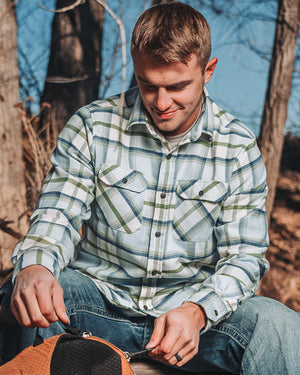
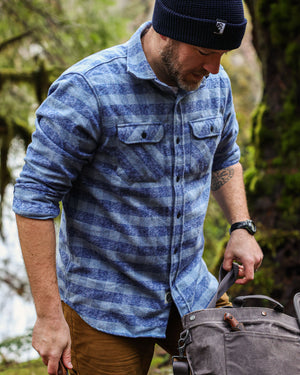
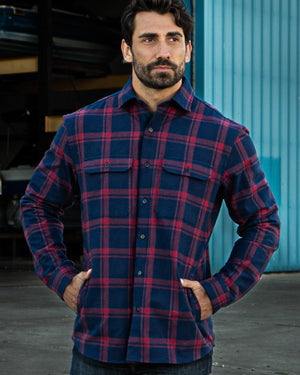
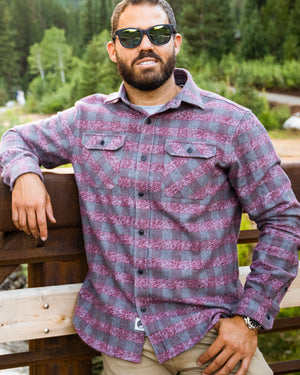
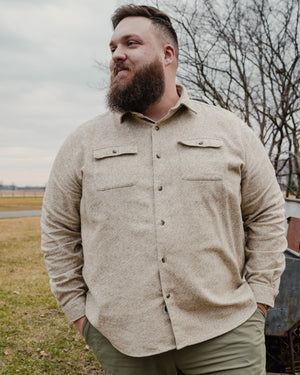
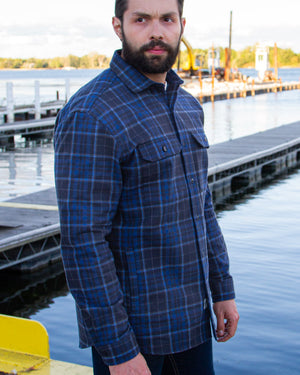
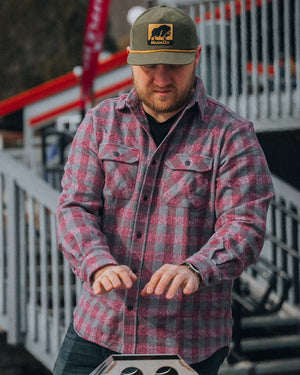

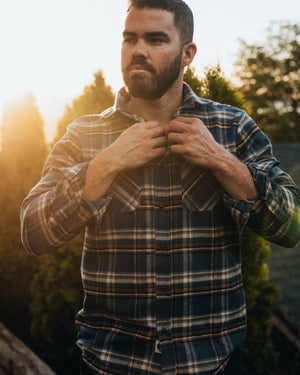
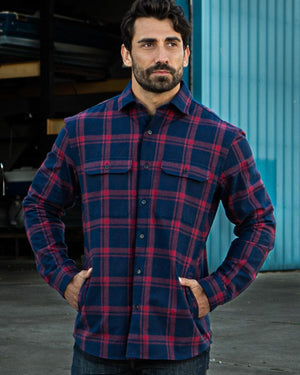
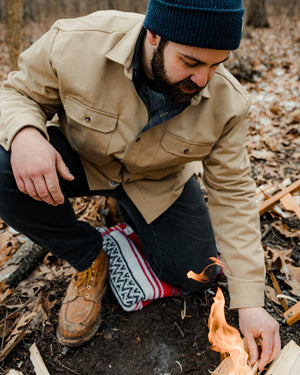
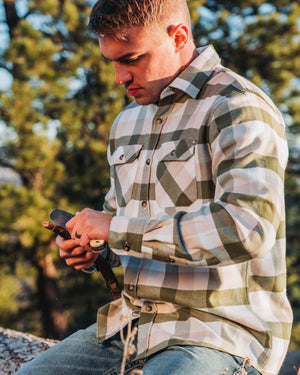
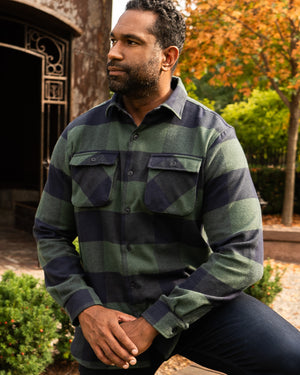









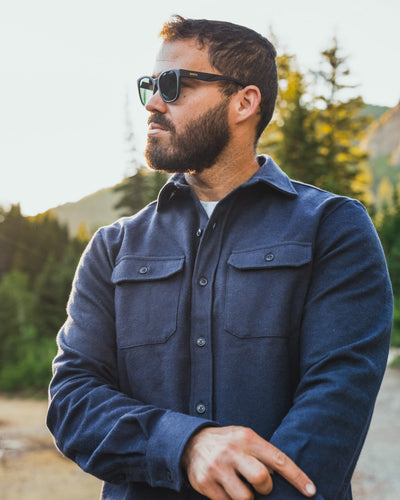



Leave a comment